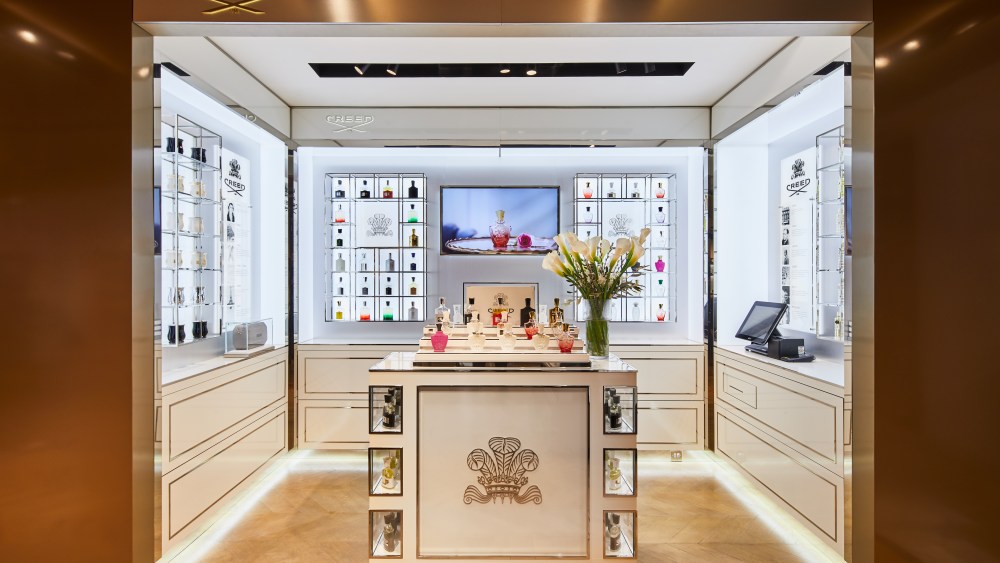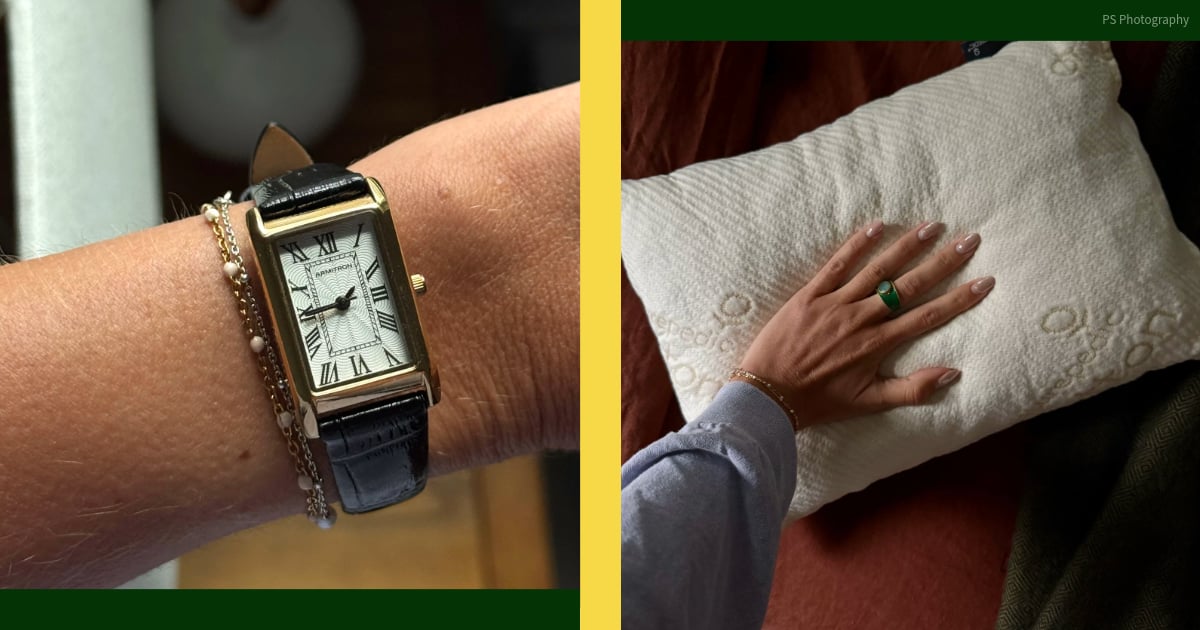PARIS — While the city was abuzz with the designer debuts at heritage houses, it was a more mixed picture at fashion and accessories trade shows here during fashion week.
Geopolitics, uncertainty over trade tariffs and the difficulties faced by high-end players continued to weigh on exhibitors and visitors at Première Classe, Tranoï and Man / Woman, all of which ran through the first weekend of October.
“It’s super-tough, especially for independent fashion brands, with multibrand retailers going out of business,” said Alise Trautmane-Uzuner, founder and chief executive officer of retail and PR platform Doors in New York. “There are less and less retailers buying into independent brands.” Nevertheless, she believes, “the American market is still very interested in independent fashion brands.”
You May Also Like
That sentiment was mirrored by other buyers, keen to discover under-the-radar labels. Stacey Pecor, owner of Olive + Bette’s in Greenwich, Conn., said, “We try to stock emerging brands from all over the world.” While ongoing tariff uncertainty had her, and many attendees, worried, she said business is good and she is still keen to bring on new suppliers. “It’s so competitive out there, but finding new brands has to be my focus, buying the best products that hopefully I’m the first to have,” Pecor said.

Mary Lynn and Lulita Reed, shopping for their new Lulumar store in the Hamptons, had a similar outlook: “We’re looking for unique brands that aren’t overexposed,” they said.
At Première Classe, WSN CEO Frédéric Maus was upbeat, saying market sentiment was better than he expected heading into September. “There is business being done, the retailers are still here,” he said. With luxury in the doldrums and consumers increasingly boycotting fast fashion, there could be opportunities for innovative newcomers, he suggested.
The numbers appeared to back up his hypothesis, with the show welcoming 12,000 visitors over its four-day run, up from around 9,500 a year ago. Some 300 labels were present, around a third of them newcomers.
WSN continues to tap into new categories like home goods, wellness and beauty as retailers seek to diversify. Ahead of the show, the trade show heavyweight announced a partnership with U.S.-based Shoppe Object for a debut European edition of the homewares show alongside Who’s Next in January. “Distribution is evolving, there are lots of categories entering concept stores,” Maus said. “As consumers, we are attracted to stores that offer something experiential, and that is what we are trying to replicate.”

“This show’s perfect for us,” said Sam Robinson, owner of The Cross boutique in Holland Park, London, shopping at Première Classe. “It’s always been one of my favorites because it’s got such an eclectic mix.”
A broader offer was also visible at Tranoï, which debuted a range of well-being labels in a dedicated area. Around half of exhibitors were newcomers, and visitor traffic was stable compared with both March and last September, said general manager Boris Provost. “There are labels writing large orders, but overall, buyers are conservative. They’re concerned by what’s happening in the world and buying rationally,” he said.
While novelty is important, consistency is also seen as key, with buyers keen to monitor young brands’ progression season after season. “To get repeat buyers is the most important,” said David Kusi Boye-Doe, the designer behind the Boyedoe brand, a semifinalist for this year’s LVMH Prize and part of the Canex showcase for African designers at Tranoï.

Among trends on show, buyers cited a return to colorful looks, craftsmanship and authentic brand stories as high on their wishlists. “It’s very colorful, apart from the Japanese designers,” noted Trautmane-Uzuner. “There’s a lot of color, a lot of prints, it’s very busy. For spring-summer, that works, I think it’s refreshing.”
At Première Classe, the Brut Icon space showcased the work of young designers including winners from the Hyères Festival. Among them, jewelry designer Lucas Bauer, who celebrates organic forms; Tal Maslavi, from Israel, who showed quirky chewing-gum-inspired jewelry pieces, and Electroforming Gallery, based in London, presenting statement hybrids of top hats and bags created thanks to sponsorship from Chanel.
For the first time, the Run x Andam showroom for avant-garde ready-to-wear labels ran alongside Première Classe in the Tuileries, benefiting from synergies and cross-traffic. The 13 designers there included names from the official Paris calendar like Benmoyal and Didu alongside upcoming designers like Siegenthaler, Lariucci, Laformela and Rappaz. “I love the Run space, that’s in line with our customer, who’s looking for something with an edge,” Trautmane-Uzuner said.

Both Tranoï and Première Classe served as incubators for emerging talent from Indonesia, the former with the first edition of Jakarta Fashion Force and the latter via Talent Indonesia and the Pintu incubator, where newcomers included streetwear label Lil Public and Denim It Up.
Jakarta Fashion Force showcased 12 labels. “It’s an initiative we’ve been dreaming of since the inception of Jakarta Fashion Week 18 years ago,” explained Svia Alisjahbana, the chair of Jakarta Fashion Week. “We are one of the biggest textile and garment manufacturers, but known for OEM. When it comes to celebrating our own talent, there was a big gap.…Our designers can compete on a world-class level.”
Brands showing included Calla, with colorful printed ready-to-wear, leather goods from Rounn, multifunctional apparel from StudioMoral, influencer brand Nagita Slavina and Buttonscarves, a popular scarf label from successful Indonesian entrepreneur Linda Anggrea, CEO of the fast-growing Modinity group.

A number of vertically integrated labels were looking at alternative strategies to multiply business opportunities, and signing contracts for private-label customers while showcasing their in-house labels. Among them, Pampa the Brand, from Peru, Namjosh, from India, and fledgling label Maria Teresa Palazzo, from Italy, whose handwoven dresses were among highlights at Première Classe.
At Tranoï, as well as offering its colorful embroidered headbands for wholesale, Namjosh had picked up private-label clients thanks to its “design-driven” manufacturing, according to managing director Vivek Sood. Namjosh produces for brands including Anthropologie and Pablo. “In order to survive, you need to have other sources of revenue,” Sood said.

The same was true for 80-year-old Brazilian family owned eyewear firm Ventura, a first-time exhibitor at Tranoï. “A lot of exhibitors have been asking about our private label. Since we have our own factory, we can do limited production runs for smaller labels. We’ve made some really good connections,” said Felipe Ventura, who runs the firm founded by his grandfather.
Over at Man / Woman, which hosted 10 brands this session, cofounder and director Antoine Floch conceded that things had been quiet, but said it remains essential to maintain a presence in Paris during fashion week. “More and more buyers are doing their spending for spring in June, but there are brands for whom it’s essential to be here now,” he said.
Brand Discoveries and Highlights at Premiere Classe, Tranoï and Man / Woman
Bombelli
Category: Leather goods

Story: Taking his inspiration from the sea, accessories designer Arnaud Bombelli has created a lineup of bags made from high-end leathers combined with rope and metallic hardware designed for marine environments, ensuring durability. The innovative lineup features purses with knotted rope details, a bag shaped like a sailor collar and a laptop bag with magnetic closures that transforms into a pouch for evening.
Pricing: 350 to 890 euros (retail)
Pampa the Brand
Category: Knitwear

Story: The Peruvian alpaca specialist, which works with some of the world’s biggest brands, is pushing the boundaries of technology to develop new techniques, which it showcased under its in-house label. Recent innovations include new combinations of cotton, alpaca and recycled polyamide, woven on the same machine to create seamless pieces. Sculptural yet vaporous lightweight dresses were among the highlights.
Pricing: From 200 to 500 euros (wholesale)
Garea
Category: Leather goods

Story: Maria Macia designed for a number of labels before deciding to create her own accessories line, which debuted at Première Classe. Her asymmetric bucket-shaped bags are made near Alicante from calf leather in a range of rich colors, and a limited-edition design features a wicker basket base handmade by artisans. Each bag comes with an inner cotton pouch with leather details.
Pricing: 420 to 520 euros (retail)
Asato
Category: Ready-to-wear

Story: It was the wholesale debut for New York-based Japanese designer Asato Kitamura. The Parsons New York graduate, whose grandmother is a kimono-maker, celebrates the beauty of imperfection, using leftover silk, cotton and wool, complete with yellow chalk markings that he turns into design features in contemporary silhouettes inspired by traditional Japanese garments.
Pricing: $290 to $990 (retail)
Hawa
Category: Ready-to-wear

Story: Hawa Sangaré, based in Paris, created her sustainable ready-to-wear brand in 2021 as a social enterprise, employing refugees, single mothers and victims of domestic violence and teaching them to sew. The brand uses Nonasource fabrics and deadstock from major fashion houses and crafts them into a contemporary wardrobe of streetwise tailored silhouettes and statement patchwork looks.
Pricing: 110 to 1,700 euros (retail prices for ready-to-wear, custom also available)
NNT Lab
Category: Fragrance

Story: Part of the new wellness area at Tranoï, NNT Lab is a Colombian fragrance brand created by 25-year-old ISIPCA graduate Nina Toro. Based in Medellin, the brand’s fragrances are inspired by Colombian cities and raw ingredients, made with raw materials from Grasse and hand-blended in Colombia. NNT Lab has three stores, in Medellin and Bogota, combining fragrance discovery with a coffee shop and is stocked in around 40 concept stores worldwide.
Pricing: 110 euros (50ml edp) to 160 euros (100ml edp)
Anabel Aram Jewelry
Category: Jewelry

Story: Launched two years ago, Anabel Aram Jewelry is the latest venture from homeware specialist and sculptor Michael Aram, who named the collection after his daughter. The brand has already garnered a strong following stateside, with Neiman Marcus among wholesale accounts, and is now opening international wholesale. Inspired by organic shapes and natural motifs, the collection is made from water-resistant 18k gold plated brass or sterling silver combined with enamel and stones.
Pricing: 26.40 to 148 euros (wholesale)
Connade
Category: Ready-to-wear

Story: Founded by Shelley Mokoena, from South Africa, Connade was a first-timer at Tranoï as part of the Canex initiative for African designers, and showed her sculptural designs on the runway. Drawing on natural landscapes and architecture, her work is at the intersection of couture and ready-to-wear. Certain fabrics are woven in house, using fishing lines to create structure on semi-transparent, organically shaped silhouettes.
Pricing: 280 to 1,460 euros (retail); couture pieces up to 2,754 euros.
Augusta
Category: Footwear

Story: Paloma Rato worked for many years as an accessories buyer for Inditex, while her sister Cristina is a civil engineer. Looking for a new venture, the siblings launched their footwear label Augusta in 2019 with the mission of offering premium, timeless contemporary shoes. The broad, accessible lineup is crafted in Spain and the brand has met with considerable success, with its mary jane designs among its bestsellers. Braided and snake print leather designs were selling well for spring. Stockists include El Corte Inglés, Galeries Lafayette, Le Bon Marché and Rinascente.
Pricing: 195 to 300 euros (retail)
One Node
Category: Rainwear

Story: After moving to a remote Norwegian island, German artist Julia Kröner Venø was inspired by the natural environment and the weather to create a colorful collection of rainwear to fill what she sees as a gap in the market. Highlights in the collection include lightweight coats with painted motifs made from Oekotex fabric with cinched waists that can be folded into the hood for carrying as well as statement over-the-knee rainboots. The quirky brand will stage a pop-up at Bikini Berlin later this year.
Pricing: 300 to 550 euros (retail)


